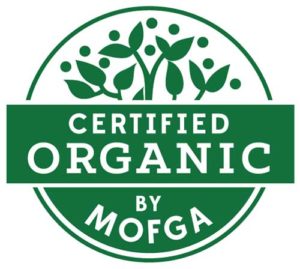What is Organic?
Preserves pollinator habitat, promotes biodiversity, and builds healthy soil
Organic farmers use practices such as cover cropping, crop rotation, composting, and planting a diverse mix of crops to protect soil and water quality while enhancing biodiversity. These practices support soil health, preventing erosion and runoff, and work to sequester carbon and nutrients in the soil.
Reduces the amount of toxic chemicals in our environment and in our bodies
Organic agriculture does not permit the use of synthetic chemical pesticides or herbicides. Most of the pesticides that are allowed in organic are derived from natural products, are low in toxicity, and break down rapidly.
Excludes genetically modified organisms (GMOs)
Organic farmers do not use GMO seeds, plants, or animal feeds, and certified organic processed foods are not made with GMO ingredients.
Promotes humane production of livestock, without synthetic antibiotics, added growth hormones, or GMO feed
Animals raised for organic meat and dairy products are raised without synthetic antibiotics or added growth hormones, such as recombinant bovine growth hormone (rBGH). Additionally, organic livestock farmers ensure that animals have access to the outdoors and room to move, graze, and develop according to their natural behaviors. Organic livestock cannot be fed GMO grains.

The MOFGA Certified Organic label assures integrity and transparency.
The word “organic” is federally regulated. Before a farmer or food producer can start selling foods labeled as organic, an accredited third-party inspector – such as MOFGA Certification Services LLC (MCS) – must visit the business and ensure that organic practices are being followed. Certified organic producers are inspected annually and must keep careful records of their practices to ensure compliance with federal organic standards.
